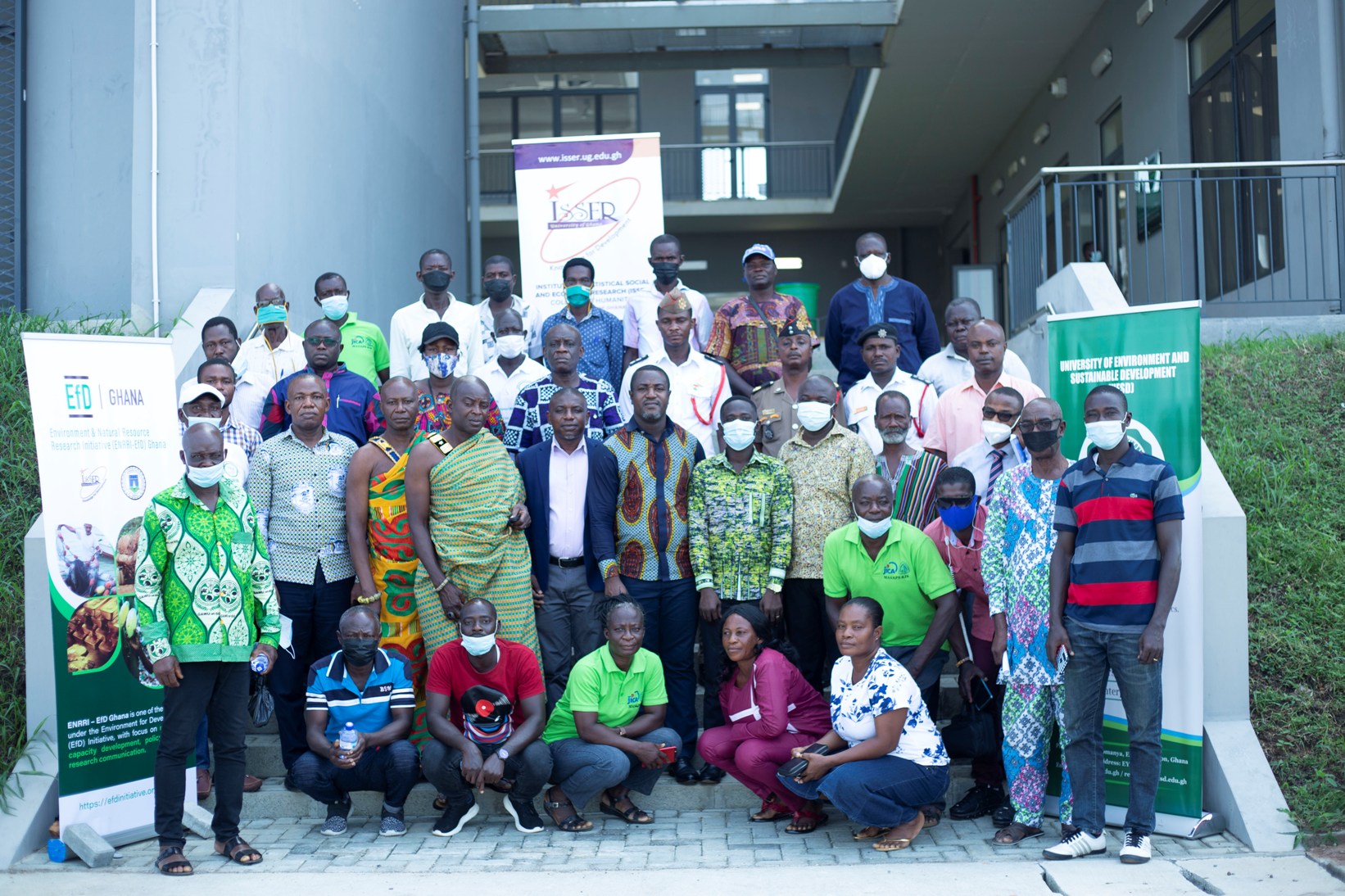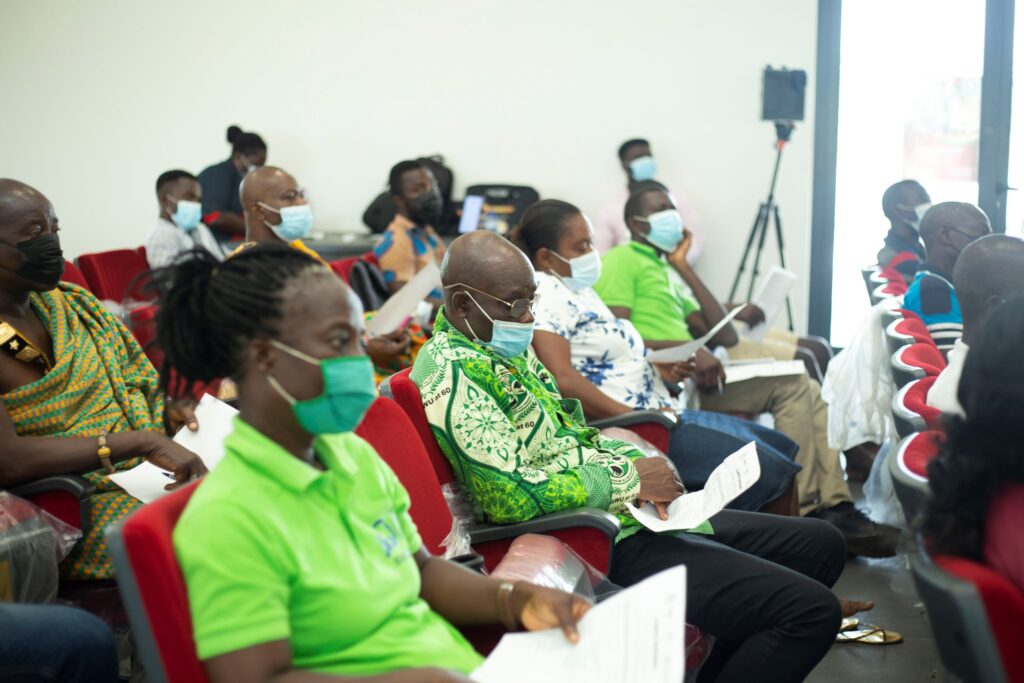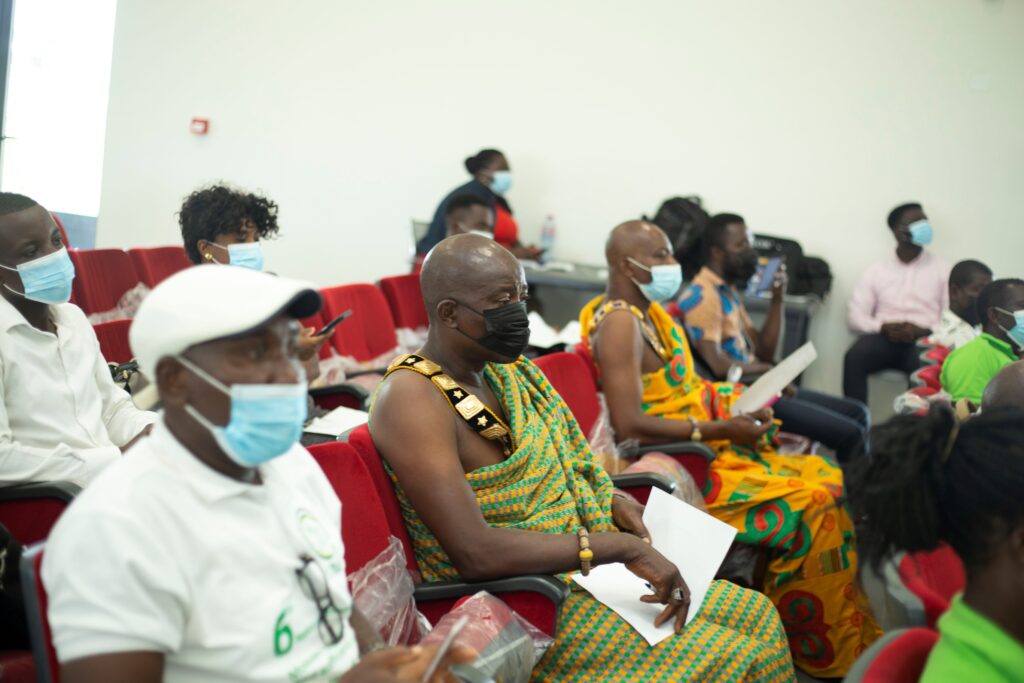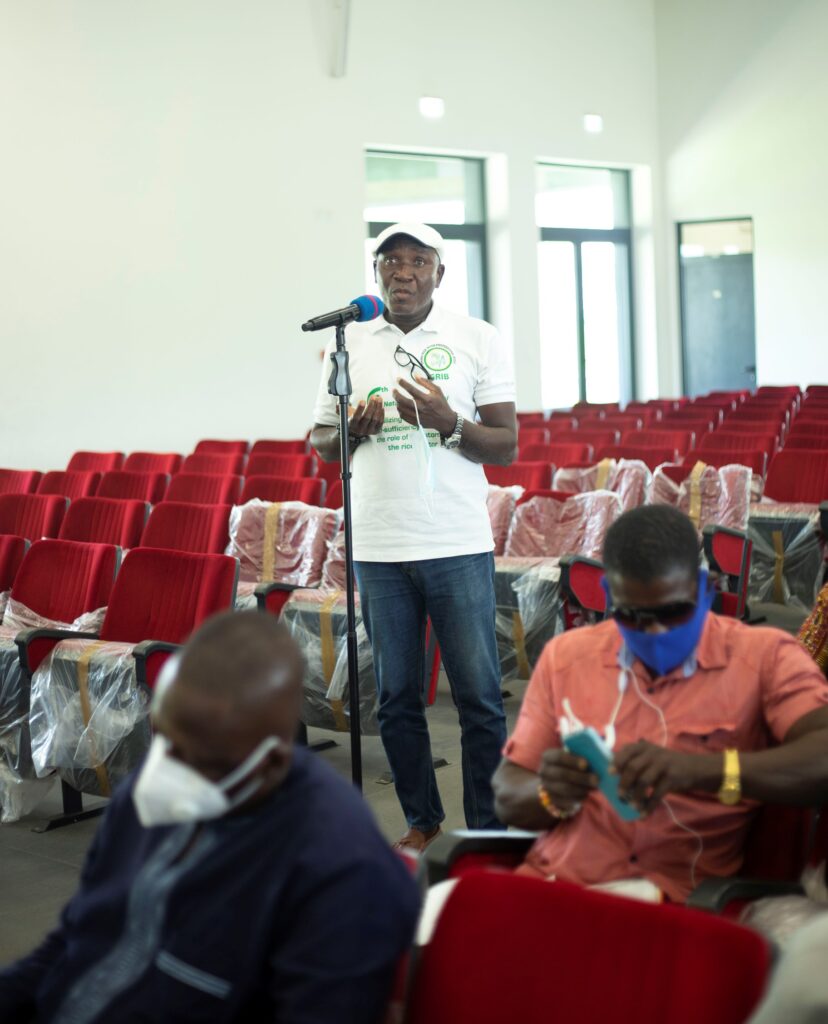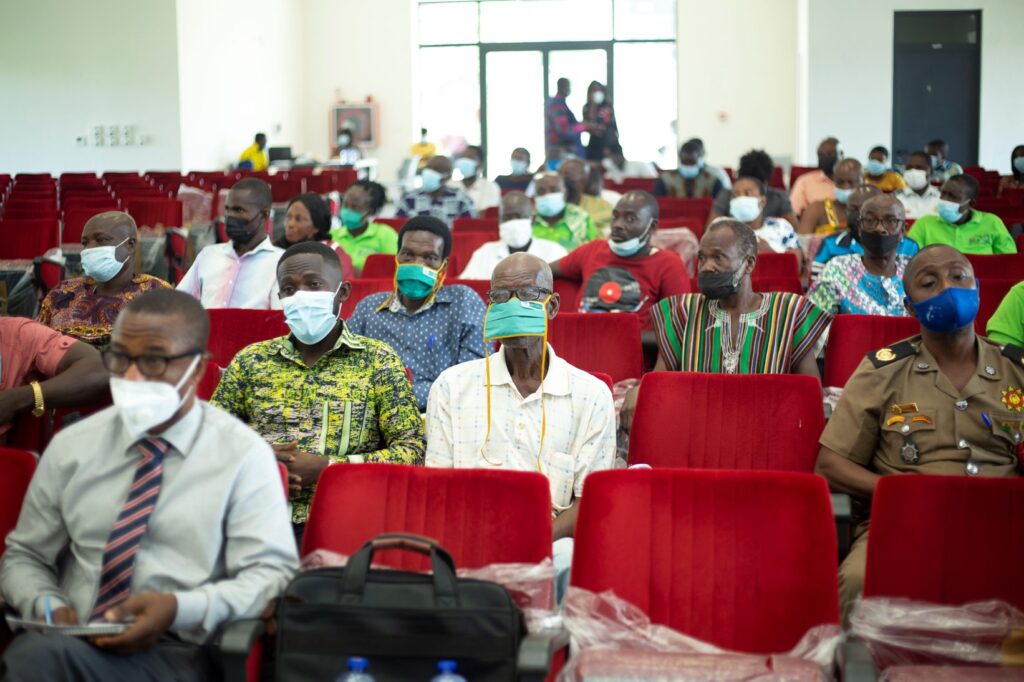The Institute of Statistical, Social and Economic Research (ISSER) of the University of Ghana, Legon and the Community Engagement Projects and Innovations Unit (CEPIU) of the University of Environment and Sustainable Development, (UESD) have jointely organized a workshop on climate change and improved farming techniques for farmers in the Yilo and Manya Krobo Municipalities of the Eastern Region.
It was held at the Multi-Purpose Auditorium of the University dubbed:“Touching Agro-Communities with Climate Education.’
The Chairman for the occasion, Prof. Anthony Amoah, explained that the workshop sought to educate farmers on ways of improving their farming techniques to avoid low harvest.
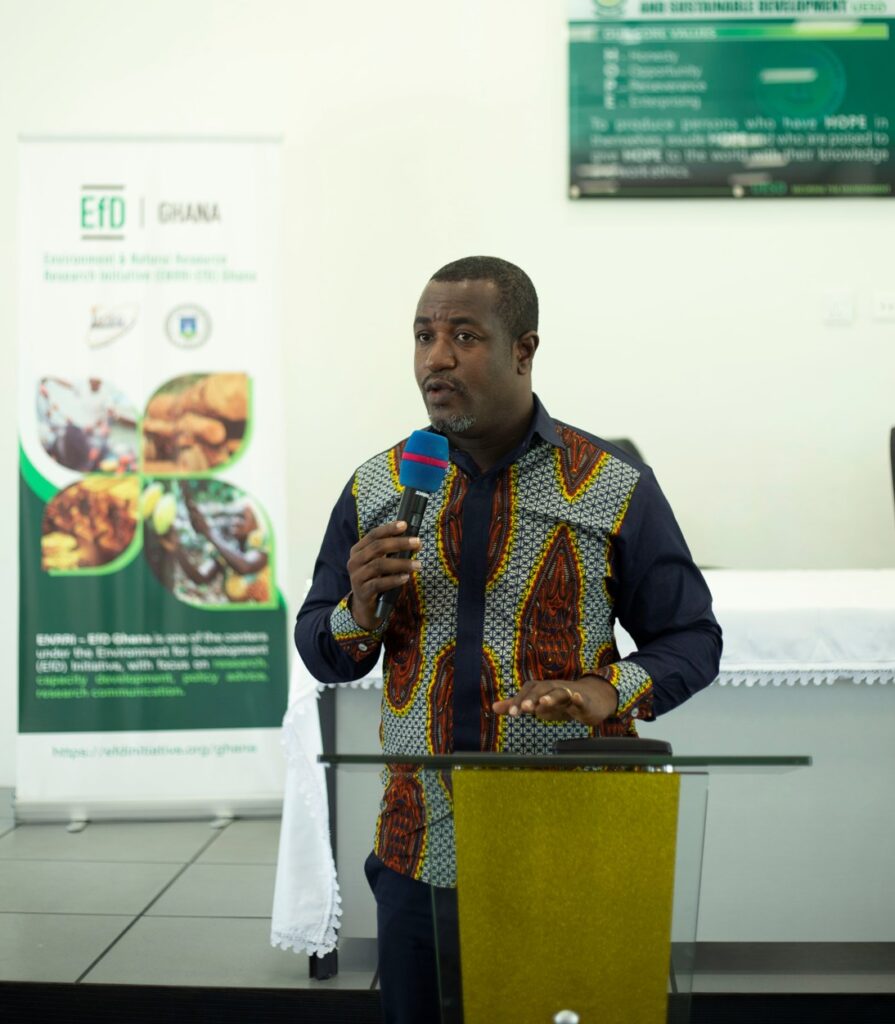
He congratulated the organizers on putting together the event.
Presenting on: “Farmers’ vulnerability to Climate Change and the implications for their adaptive capabilities,” a senior research fellow at ISSER, Dr. Simon Bawa Kyillenuo explained the impact of climate change on Agriculture and ‘the adaptive capacities of farmers’.
He said, climate change is triggering the warm stage globally and that explains the fast pace of the global warming process.
He said, overcoming the impact of climate change can be classified into three (3) stages; the awareness/adaptive stage, the ability stage and the action stage.
The awareness stage he explained is the ability to adjust to climate change by taking advantage of opportunities available to cope with the consequences.
The ability stage is the capability to use technology to manage the situation and the action stage is introducing policies to address the situation.
Presenting on:“Information puts “smile” on faces of farmers,’ an Environmental Science Lecturer of the UESD, Dr. Ishmael Lente, touched on information available to farmers on climate change and where they can access it.
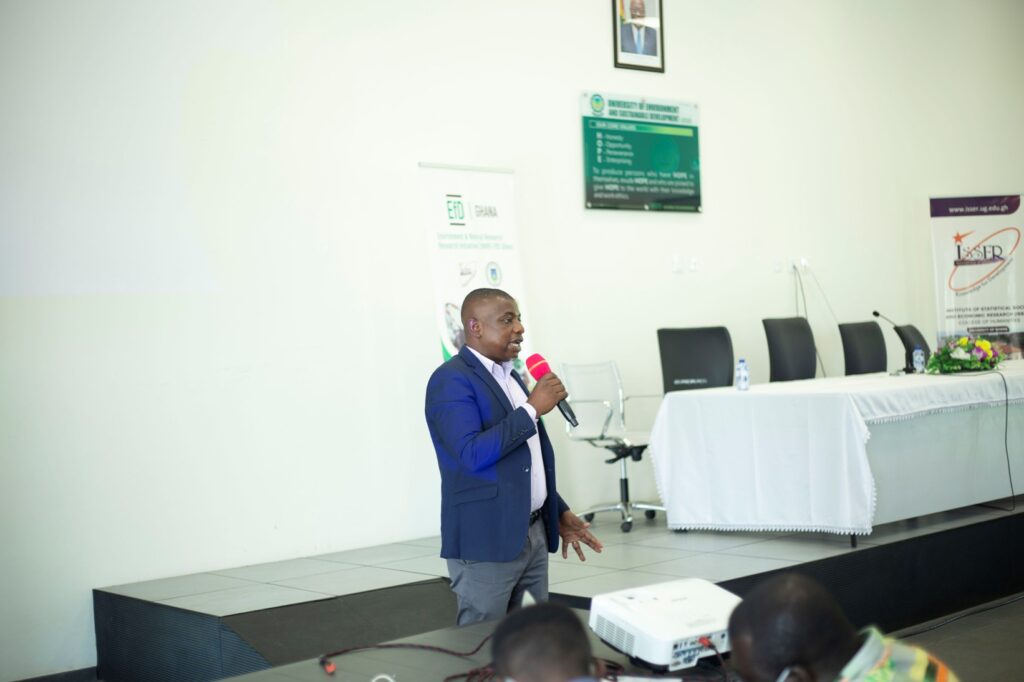
He said, information on climate change can be classified into two (2) categories: Primary and Secondary Information gathering.
Dr. Lente explained that the primary sources of information available to farmers are through household surveys, community focus group discussions and key informant interviews.
He said, the secondary information can be gathered through G-Met Gauge data, that is, rainfall and temperature readings.
Dr. Lente indicated that research has shown that farmers also rely on radio announcements, opinion leaders, family and friends for information, regarding climate change.
He said, although it is okay to seek information from such sources, it is more reliable to seek information on climate change and farming related issues through government authorities such as the Meteorological Agency, Agric Extension Officers, the Internet and Climate Experts.
A Lecturer at the UESD, Dr. Peter Asare-
Nuamah presented on:“Scaling up climate smart agriculture practice amidst climate change in smallholder agriculture systems”.
Dr. Asare-Nuamah introduced diverse ways of farming practices that can increase yield. These included mulching, ploughing, crop diversifying, use of agro-chemicals and organic fertilizer.
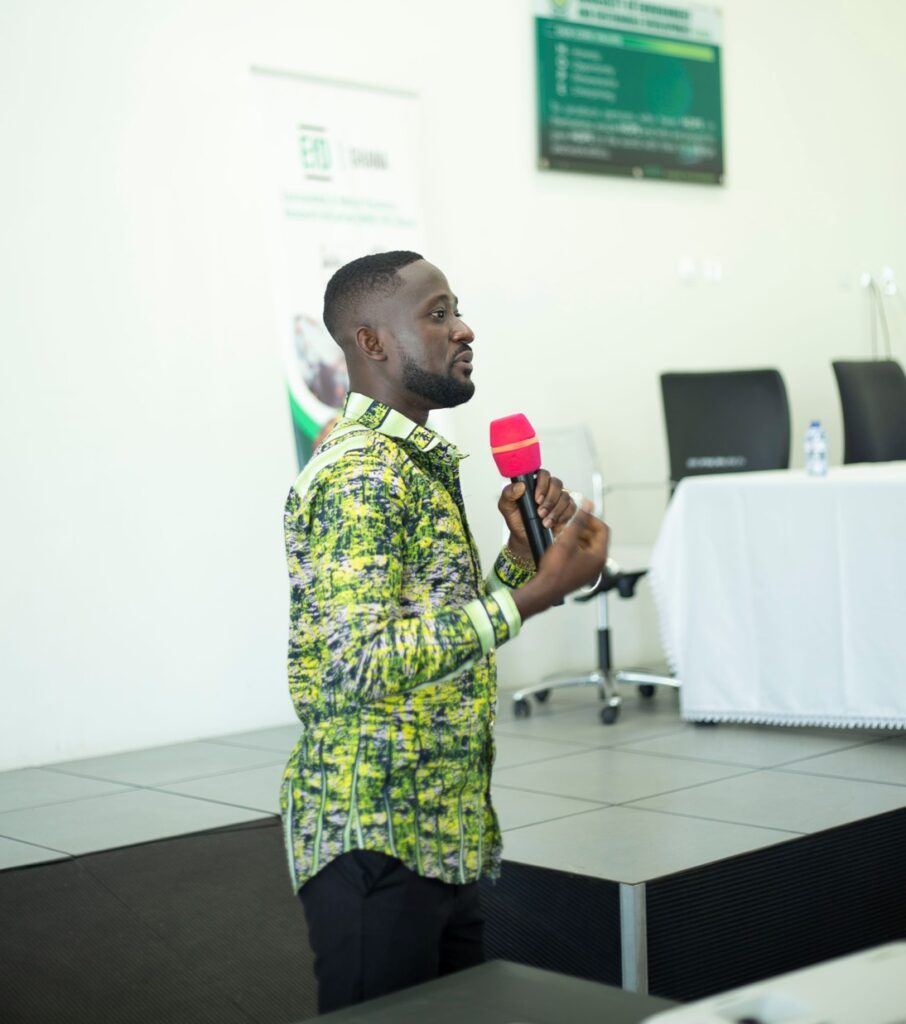
In an open forum, the farmers expressed gratitude to the organizers and the scientists for the programme.
They were hopeful the techniques they have learnt will go a long way to impact positively on their farming activities.
They called for more of such interactive meetings for all farming communities across the country.

